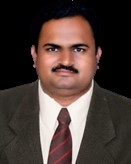

About Us

Prof. Karim S. Mulani
Head, Department of Information Technology
Phone: 02114-673475
E-mail: hodit.sit@sinhgad.edu
Department of Information Technology with its inception in the year 2004, believes that it is an emerging technology that is becoming the key for every industry or business. With the intake capacity of 60, we have maintained its pace with the current needs of society and industry to provide dynamic IT leaders who possess a strong understanding of both technology and essential business and management principles.
Our teaching-learning methodologies with a unique blend of technology, technically competent facilities, innovative practices and coursework taught by both academic professors and leading industry experts strive to produce skilled intellectual IT professionals. Our graduates are poised to lead decisions about technology and its implementations by bridging the gap between academia and industry.
Department provides vertical growth in students and staff members for enhancement in technical and social means. The broad spectrum of knowledge base and experience present within our faculty opens up excellent opportunities to deliver multidisciplinary research and teaching across organizational boundaries. Our faculty has the potential to generate knowledge and solutions to the complex challenges of our global, digital and multicultural society.
VISION
The department of IT visualizes teaching learning methodologies to create groomed, technically competent, skilled intellectual IT professionals to achieve the challenges of dynamic needs of local as well global industry and professional community.MISSION
Short Term Goals
Long Term Goals
Program Education Objectives
To provide strong fundamental concepts in mathematics, science, engineering and Technology to address technological challenges.
Program outcomes (PO’s)
Students will be able to:
i) Engineering Knowledge: Apply the knowledge of mathematics, science, engineering fundamentals, and an engineering specialization to the solution of complex engineering problems.
ii) Problem Analysis: Identify, formulate, review research literature, and analyze complex engineering problems reaching substantiated conclusions using first principles of mathematics, natural sciences and engineering sciences.
iii) Design/Development of Solutions: Design solutions for complex engineering problems and design system components or processes that meet the specified needs with appropriate consideration for the public health and safety, and the cultural, societal, and environmental considerations.
iv) Conduct Investigations of Complex Problems: Use research-based knowledge and research methods including design of experiments, analysis and interpretation of data, and synthesis of the information to provide valid conclusions for complex problems:
v) Modern Tool Usage: Create, select, and apply appropriate techniques, resources, and modern engineering and IT tools including prediction and modelling to complex engineering activities with an understanding of the limitations.
vi) The Engineer and Society: Apply reasoning informed by the contextual knowledge to assess societal, health, safety, legal and cultural issues and the consequent responsibilities relevant to the professional engineering practice.
vii) Environment and Sustainability: Understand the impact of the professional engineering solutions in societal and environmental contexts, and demonstrate the knowledge of, and need for sustainable development.
viii) Ethics: Apply ethical principles and commit to professional ethics and responsibilities and norms of the engineering practice.
ix) Individual and Team Work: Function effectively as an individual, and as a member or leader in diverse teams, and in multidisciplinary settings.
x) Communication: Communicate effectively on complex engineering activities with the engineering community and with society at large, such as, being able to comprehend and write effective reports and design documentation, make effective presentations, and give and receive clear instructions.
xi) Project Management and Finance: Demonstrate knowledge and understanding of the engineering and management principles and apply these to one’s own work, as a member and leader in a team, to manage projects and in multidisciplinary environments.
xii) Life-long Learning: Recognize the need for, and have the preparation and ability to engage in independent and lifelong learning in the broadest context of technological change.
Program Specific Outcomes